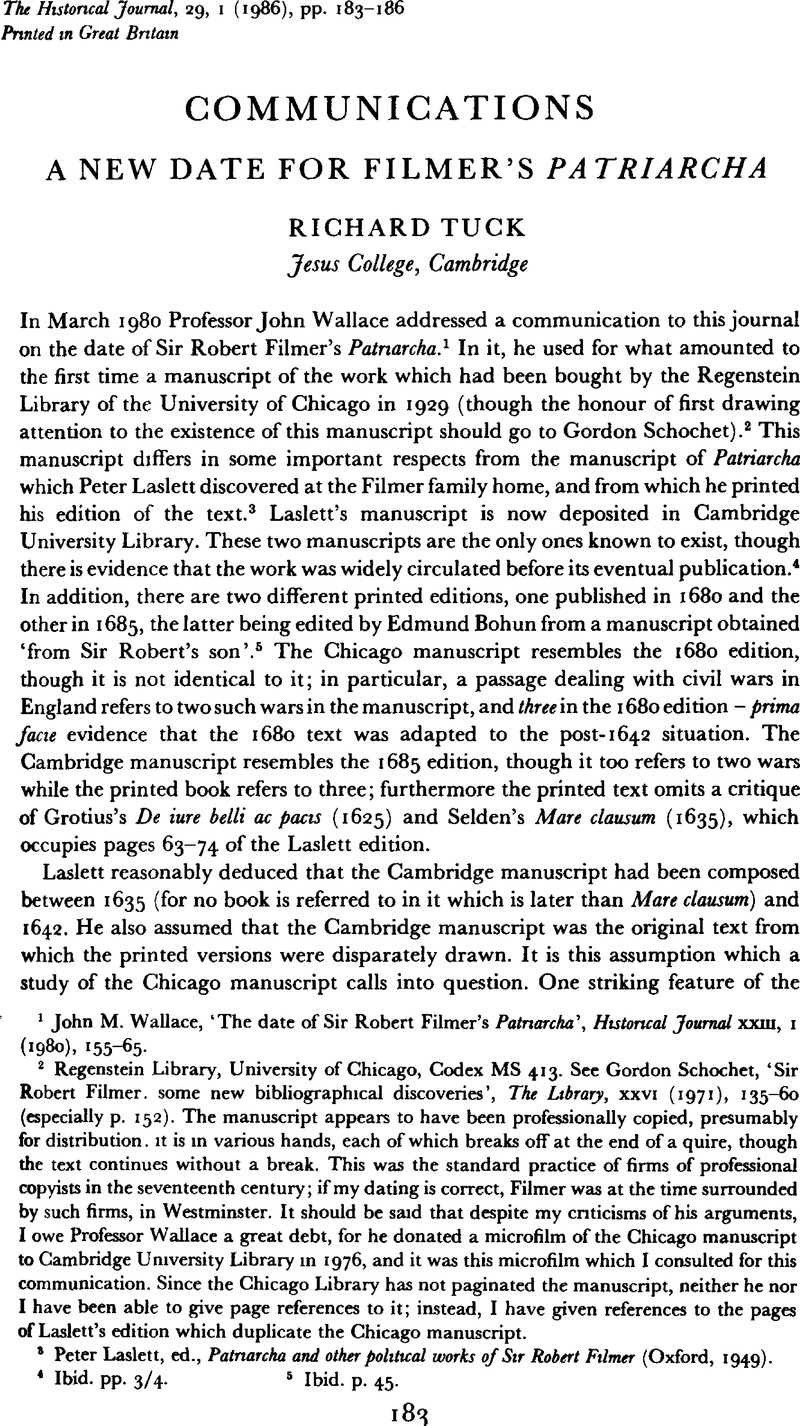Article contents
A New Date for Filmer's Patriarcha
Published online by Cambridge University Press: 11 February 2009
Abstract

- Type
- Communications
- Information
- Copyright
- Copyright © Cambridge University Press 1986
References
1 Wallace, John M., ‘The date of Sir Robert Filmer's Patriarcha’, Historical Journal XXIII, 1 (1980), 155–65CrossRefGoogle Scholar.
2 Regenstein Library, University of Chicago, Codex MS 413. See Schochet, Gordon, ‘Sir Robert Filmer. some new bibliographical discoveries’, The Library, XXVI (1971), 135–60CrossRefGoogle Scholar (especially p. 152). The manuscript appears to have been professionally copied, presumably for distribution. it is in various hands, each of which breaks off at the end of a quire, though the text continues without a break. This was the standard practice of firms of professional copyists in the seventeenth century; if my dating is correct, Filmer was at the time surrounded by such firms, in Westminster. It should be said that despite my criticisms of his arguments, I owe Professor Wallace a great debt, for he donated a microfilm of the Chicago manuscript to Cambridge University Library in 1976, and it was this microfilm which I consulted for this communication. Since the Chicago Library has not paginated the manuscript, neither he nor I have been able to give page references to it; instead, I have given references to the pages of Laslett's edition which duplicate the Chicago manuscript.
3 Laslett, Peter, ed., Patriarcha and other political works of Sir Robert Filmer (Oxford, 1949)Google Scholar.
4 Ibid. pp. 3/4.
5 Ibid. p. 45.
6 Hooker is quoted ibid. p. 83, and Archeion, pp. 109–15. There is a passage from Polybius in an English translation on p. 80 of the Laslett text which Laslett refers to Edward Grimestone's translation of 1634; but in fact the translation in Patriarcha is quite different, and was presumably by Filmer himself.
7 Sommerville, J P, ‘Richard Hooker, Hadrian Saravia, and the advent of the divine right of kings’, History of Political Thought, IV (1983), 229–45Google Scholar See also his Cambridge Ph D theis ‘Jacobean political thoughtand the controversy over the oath of allegiance’ (1981), pp 178–84Google Scholar
- 9
- Cited by


